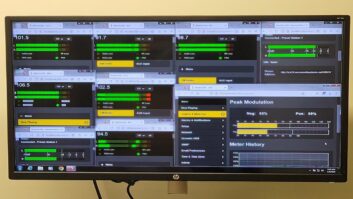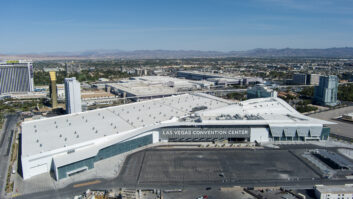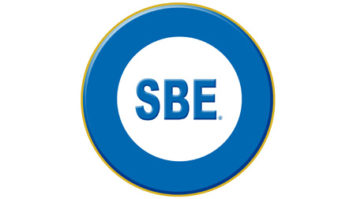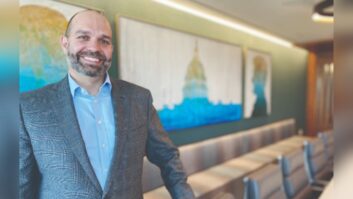
As we come to the end of a long winter, I feel a sense of renewal in the industry. The economy appears to be recovering, and with it we should soon experience a recovery in the radio industry. This spring brings with it an extra sense of rebirth beyond the seasonal changes.
I am pleased to introduce a new feature in this issue of Radio World Engineering Extra. Stephen Poole of Crawford Broadcasting will begin a regular column on Information Technology for Broadcast Engineers. This month’s topic will be on maintenance of personal computer hardware and how to tell when hardware or software causes a problem with your computer. Future topics will include all aspects of IT, such as computer security, software viruses, software maintenance and computer networking.
Regular readers of Engineering Extra will recall that Stephen has appeared in these pages from time to time, offering useful tips and tricks on a range of broadcast engineering topics in an entertaining and easily readable style. With information technology now a regular part of the responsibilities of most radio engineers, we feel this column is timely and will be helpful to you in your daily work. We welcome Stephen to Engineering Extra.
If you have suggestions for topics for his column please feel free to drop me a note at [email protected].
The envelope please …
It is also my pleasure this month to note that our very own Barry Blesser, regular author of the The Last Word column since the very first issue of Engineering Extra, was chosen to deliver the keynote address at the NAB Broadcast Engineering conference in Las Vegas.
His speech will consider the role of engineers in today’s broadcast systems, and how their role and stature can be enhanced by augmenting their technical skills with non-technical expertise. Barry is a passionate advocate of the career value of enhanced emotional intelligence and soft skills. His talk will emphasize this hidden asset.
Barry has been writing provocative and challenging columns in Engineering Extra for more than five years now. It is hard to summarize in just a few words the wide range of ideas and concepts that he has covered in that time.
Dr. Blesser has written about the need for lifelong learning, technological scarcity and surplus, the techniques of negotiation, the psychology of schedules, the psychology of technical quality, Chaos Theory, head-space farming, the illogic of logical reasoning, HD Radio, the development of the compact disk, audio villages, aural architecture, engineering listservs, the Long Tail phenomenon, Word of Mouth marketing, management and decision-making, corporate cultures, understanding people to become a better engineer, and businesses based on a model of delivering products to consumers for free, just to mention some of the topics.
In the process, Barry has at various times quoted Plato, Peter Jennings, Malcolm Gladwell, Marshall McLuhan and Gordon Moore, along with many other writers of current interest.
Blesser is considered one of the grandfathers of the digital audio revolution. He invented and developed the first commercial digital reverberation system, the EMT-250 in 1976, helped start Lexicon in 1971, published the landmark paper, “Digital Processing of Audio Signals” in 1978, co-chaired the 1st International Conference on Digital Audio in 1980 and was an unpaid adviser to the U.S. Justice Department on the Watergate Tapes in 1974.
He was president of the Audio En¬gineering Society in 1980, the AES awarded him their Silver, Bronze and Governors Medals, both Publication Awards, and made him an AES Fellow. He has been on the AES editorial review board since 1975, and currently serves as its consulting technical editor. He also has published numerous papers in professional journals and has been awarded many patents on audio and signal process.
After receiving his S.B, S.M and Ph.D. from MIT in Electrical Engineering in 1964, 1965 and 1969, Barry served on the MIT faculty from 1969 to 1978 as an associate professor of electrical engineering and computer science. He taught courses on electronic, instrumentation and audio technology while conducting research in the Cognitive Information Processing Laboratory.
After leaving academia in 1978, he has been a technical and management consultant, working with more than 50 companies, including AKG, Orban, Harmon and Studer. He often functions as a “change agent,” using the principles of risk engineering to maximize productivity and profitability. In addition, he has been an expert witness on patents cases, a director of engineering, and chief technology officer, and a founding officer of several startup companies.
As Barry’s long-time editor, I find it amazing that such a range of topics could emanate from one writer, informed by his unique perspective on the inside of the engineering world. I always learn something from his columns. And countless times while reading I have found myself nodding slowly as I recognize myself in his descriptions and the wisdom of his observations.
In honor of his selection to be the keynote speaker at the NAB Broadcast Engineering Conference, we have an extra-long column from Barry this month. I hope you find it as thought-provoking as I did.












